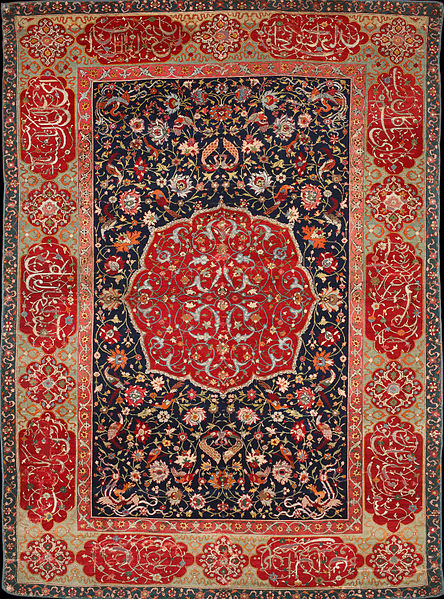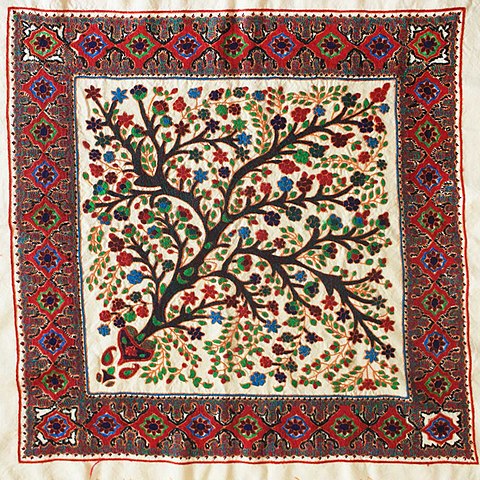
Thammasat University students interested in history, political science, international affairs, diplomacy, sociology, education, West Asian studies, and related subjects may find it useful to participate in a free 28 November Zoom talk on The Protests in Iran: What’s Happening and Why it Matters.
The event, on Monday, 28 November 2022 at 7pm Bangkok time, is presented by the School of Humanities, Centre for the Study of Globalization and Cultures and Centre for the Study of Globalization and Cultures, The University of Hong Kong (HKU).
The TU Library collection includes several books on different aspects of the political history of Iran.
The speaker will be Professor Hamid Dabashi, who teaches Iranian Studies and Comparative Literature at Columbia University, New York, the United States of America. The TU Library collection includes some works by Professor Dabashi.
Students are invited to register for the event at this link:
https://hkuems1.hku.hk/hkuems/ec_regform.aspx?guest=Y&UEID=85040

As Professor Dabashi wrote in The Guardian a few years ago about the imprisonment of a celebrated Iranian film director,
What exactly does it mean to condemn a globally celebrated film-maker who has done nothing but bring credit to his profession and glory to his homeland, to six years in prison, and on top of that to ban him from making a film for 20 years, from writing any script, from attending any film festival outside his country, or giving any interview to any journal or magazine, published inside or outside his homeland?
Jafar Panahi is 50 years old. He is at the top of his creative powers. Banning him from making films for 20 years is worse than a death sentence.
It is worse than blowing up the Buddha statues of Bamyan in Afghanistan. The Taliban destroyed works of art and piety that the world had already seen, but these custodians of fanaticism have forbidden the world to see what was yet to be created.
As a film-maker, Jafar Panahi is central to a generation of Iranian film-makers who came to fruition in the thick and heavy shadow of their demigod elders – giants such as Bahram Beizai, Amir Naderi, Nasser Taghvai, Abbas Kiarostami, Dariush Mehrjui, and Mohsen Makhmalbaf.
Panahi in particular has pushed the boundaries of film-making, not just in his homeland but around the globe. Banning him from making any films for 20 years is far more than a piece of banality in the Iranian judicial system. It is the damning of an entire art, the vengeance visited upon an entire people – the murdering of their very urge to create, their desire for beauty and truth.
Panahi’s career as a film-maker began as a protégé of Abbas Kiarostami, and soon assumed a distinctive character of its own, increasingly fusing two converging aspects – formal and thematic – that became his cinematic signature: technical virtuosity in his cinematic imagination and social consciousness, which graced his aesthetic formalism. For the first reason, the blind custodians of the sacred terror fear him instinctively; for the second they dread him politically.
Although Panahi’s cinematic career began in the mid-1980s, it was with Badkonake Sefid (The White Balloon) (1995) that he emerged as a major force in the Iranian new wave. Soon after that, his Ayeneh (Mirror) (1997) established him as a globally acclaimed cinematic visionary. But it was with Dayereh (The Circle) (2000), an absolute masterpiece, that the world noticed Panahi was up to something entirely distinct from what was now characterised as Iranian cinema.
With Talaye Sorkh (Crimson Gold) (2003), premiered at Cannes, Panahi was standing tall next to his elders. He grew taller with each film, seeing farther, sensing more fiercely, commanding his camera with flair and force. When he made Offside (2006), about the obscenity of not allowing women into a soccer stadium, every shot was electrified with the damning power of a master craftsman holding his people’s hopes high. Now everyone understood. He was the dream of Terry Malloy come true. He had class. He was a contender.
The sentence against Panahi is a national catastrophe for Iran, a global cause for denunciation, a disgrace to an already disgraceful regime, which knows no boundary. What the Islamic Republic is in fact silencing is not just Panahi but the sort of cinema he best represents. In his last statement to the court before sentencing, Panahi said:
“You are putting on trial not just me, but Iranian social, humanist and artistic cinema – a cinema in which there is no absolutely good or absolutely evil person, a cinema that is not in the service of power or wealth, a cinema that does not condone or condemn anyone … a cinema that is inspired by [addressing] social malaise and ultimately reaches out to humanity.”
It is precisely that cinema that the Islamic Republic fears most. Look at those cinematic luminaries who have been forced to leave their homeland over the lifetime of this regime: Amir Naderi, Bahman Farmanara, Mohsen Makhmalbaf, Marzieh Meshkini, Bahman Ghobadi, Samira Makhmalbaf, Susan Taslimi, Parviz Sayyad and Reza Allamehzadeh. The list is a long one. Those who have remained inside and continue to work are subject to systematic and vicious harassments, as Bahram Beizai, the doyen of Iranian cinema, has been.
This brutal sentencing of Panahi is not an isolated incident. It comes after 30 years of systematic brutalisation and distortion of a cosmopolitan culture. Appalling university purges, cultural revolutions, mass executions and blind censorship of the arts have been the common staple of this regime.
Today leading Islamist revolutionaries, many of them in jail or in exile, are coming forward and publicly apologising for what they have done in bringing this calamity upon their own people – and not a moment too soon. For more than 30 years, this regime has been in the business of either silencing or forcing into exile those it finds incompatible with its fanatical fantasies. Leading novelists such as Shahrnoush Parsipour, Moniru Ravanipour and Shahriar Mandanipour, have all been forced out of their homeland into the indignity of exile. Film-makers and novelists such as Ebrahim Golestan, literary critics such as Reza Baraheni, poets including Esmail Khoi, artists such as Nicky Nodjoumi and Shirin Neshat, satirists such as Hadi Khorsandi, scholars including Mashallah Adjoudani and Hossein Bashiriyeh, women’s rights activists including Mehrangiz Kar, Mahboubeh Abbasgholizadeh and Parvin Ardalan, and the Nobel laureate Shirin Ebadi, along with millions of other innocent people, have left their homeland, never to return. Abdolkarim Soroush and other philosophers, Mohsen Kadivar and other theologians, Akbar Ganji and other investigative journalists – all of them have been ejected from their natural habitat and forced into exile.
This is a slow and torturous murdering of the creative soul of a nation.
An update:
On 15 October 2011, a court in Tehran upheld Panahi’s sentence and ban. Following the decision, Panahi was placed under house arrest. He has since been allowed to move more freely but he cannot travel outside Iran. On 11 July 2022, Panahi was arrested when he went to the prosecutor’s office to follow up on the situation of another film-maker, Mohammad Rasoulof. He was the third director detained in less than a week.

(All images courtesy of Wikimedia Commons)
